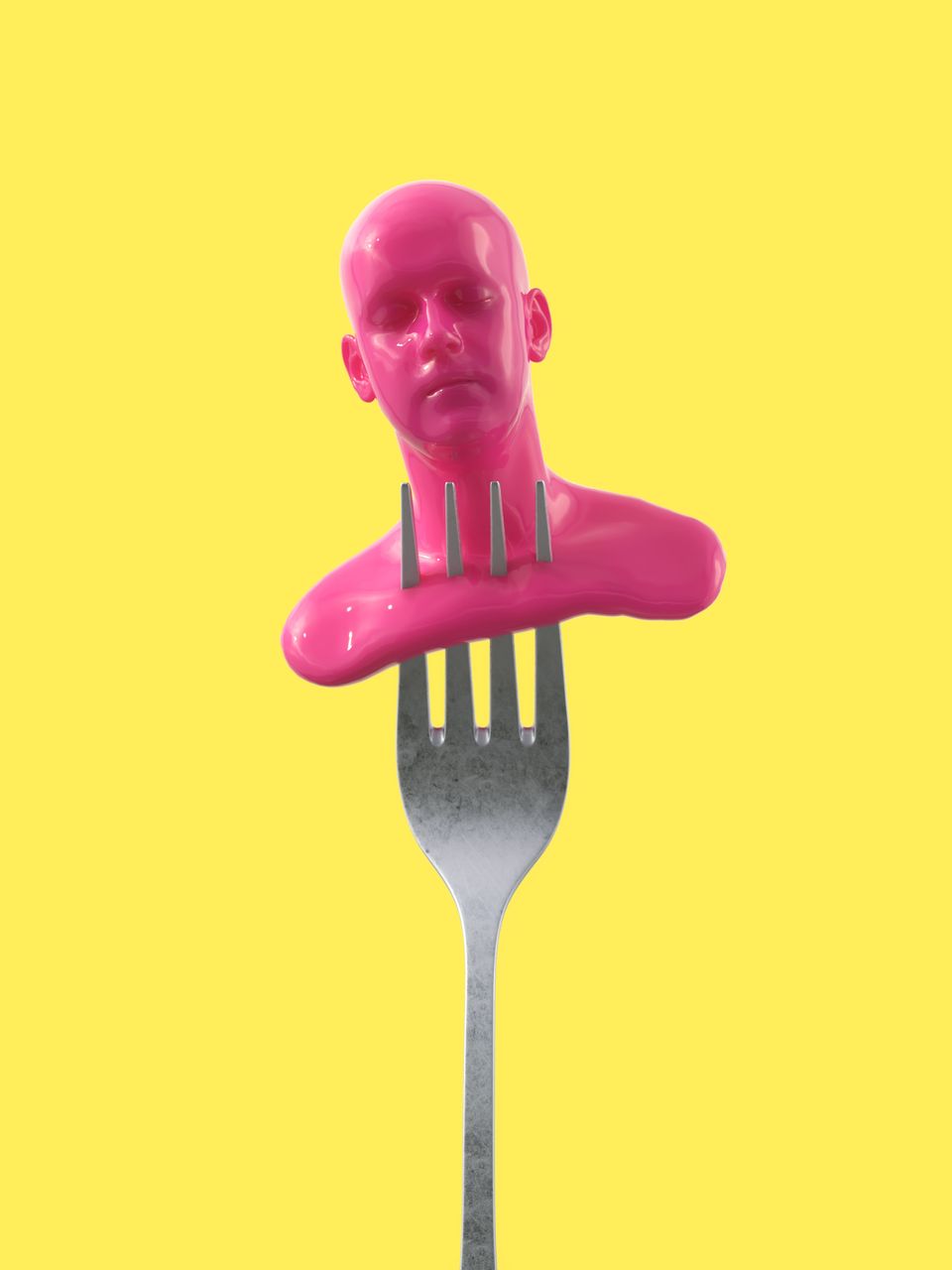Derren Brown on How to Enjoy Eating Something You Hate

Expectations alter reality, and it this post I’m going to show you a way of altering your expectations so that not only can you eat something you don’t like, you can learn to love it.
Brian Wansink, Ph.D., in his classic weight loss book Mindless Eating: Why We Eat More Than We Think recounts a study he conducted on the expectation of taste. Wansink told a bunch of soldiers he was investigating nighttime eating and asked them to take part in a study wherein they would eat strawberry yoghurt in darkness.
They agreed, but Wansink had something else up his sleeve.
The yoghurts weren’t strawberry at all — they were chocolate. After the soldiers had finished eating the chocolate yoghurts the researchers asked them to rate the flavor. 19 out of the 32 soldiers applauded the yoghurt for its “good strawberry taste.”
Because they expected to taste strawberry, they did.
Wansink says:
Psychologists call this “expectations assimilation” and “confirmation bias.” In the case of food, it means that our taste buds are biased by our imagination. Basically, if you expect a food to taste good, it will. At the very least, it will taste better than if you had thought it would only be so-so.
We can use the psychology of expectation assimilation to alter our preferences in food.
How to Eat Something You Don’t Like According to a Master Hypnotist
Psychological illusionist and author Derren Brown shows us exactly how to do this. In his book Confessions of a Conjurer, Brown reveals how he used conscious expectation assimilation to learn how to eat food he didn’t like:
As a child I was an immensely fussy eater: I would touch very few vegetables, and many foods made me squeamish. I did not like fish, beans, cabbage, peas, carrots, tomatoes, nuts, cream, coconut, salami, new potatoes, blue cheese, eggs or coffee. It took an accident as a university student to bring me out of the paralysing mental block that constitutes fussy-eating.
One night Derren ordered a pizza with friends containing the dreaded salami. Ordinarily he would have picked off the salami, but this pizza was covered by a thick layer of melted cheese, making it impossible to remove the Italian sausage without ruining the whole thing.
Rather than throw the pizza away, Brown harnessed the power of expectation assimilation:
I played a trick on myself… I decided that much of fussy-eating was a result of expecting not to like something, and presuming that certain tastes were going to be unpleasant. Thus, a process of anticipating the disliked taste, as if awaiting confirmation that the food cannot be enjoyed, maintains the childish, finicky response to food. It is rather like deciding one does not like a particular musical instrument and training one’s ears to pick it up during a symphony; then, the moment it is faintly detected, announcing that the piece is unlistenable. I knew I had to block that process, and that the most effective way to do such a thing would be to fill my mind with the pleasurable noises I might make when eating something I was really enjoying. So, rather than search for the salami taste I knew I did not (historically at least) like, I took a bite and mad enthusiastic ‘Mmmm, that is gorgeous’ sounds both out loud and to myself. It worked very well. I actually found myself enjoying the slice of pizza, and with each new slice it took less effort to block my practiced reinforcing response of old, so that but the time the pizza was consumed, my loathing of the peppered sausage had passed entirely. Shocked by how easily I had undone years of loudly professed hatred, I began a personal project of undoing all my dislikes, one by one.
To take Derren’s advice, when you don’t like a particular food but you would like to, pretend it’s the nicest tasting thing you’ve ever eaten, as you chew. Really get into the role. Exaggerate it, and play along. You’ll notice the food will start tasting nicer.
Techniques like the one above are always hard to implement. “I have to think those things when I’m eating… really?” What I suggest to get around this natural human laziness, is to pick just one healthy food you don’t like very much, and eat it every day for a week using the expectation assimilation technique.